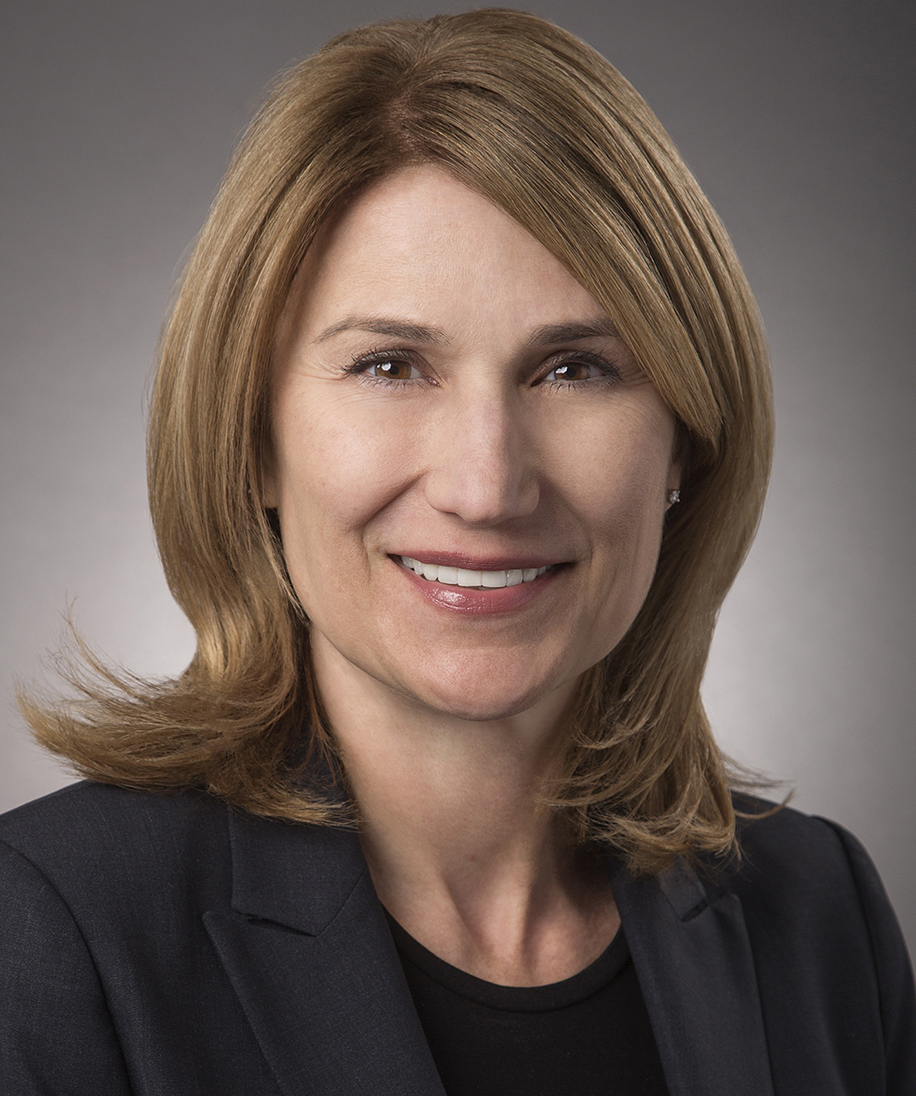Client Alert
COVID-19 and Corruption-Related Risks: High on the International Agenda
May 21, 2020
By Nicola Bonucci, Tara K. Giunta, Corinne Lammers & Josh Christensen
As countries around the world grapple with providing quick relief from the COVID-19 pandemic to individuals and companies, many governments have taken a two-pronged response: providing significant public funds while simultaneously implementing regulatory changes aimed at quickly addressing the ongoing crisis. The availability of public funding, combined with changes in the regulatory environment, presents new opportunities for fraud and corruption, and a number of international organizations and enforcement agencies have begun to sound the alarm regarding this rising risk. Their concerns highlight the fact that this new risk environment may be one of the most troubling and unintended (but not unique) consequences of the response of governments around the world to the COVID-19 pandemic. To paraphrase George Santayana (later borrowed by Winston Churchill), “those who do not learn from history, are doomed to repeat it.”
In addition to uncovering long-standing fraud schemes (see Bernie Madoff), the 2008 financial crisis triggered significant investigations into market-disrupting behavior, such as the Libor/FX investigations (the transition away from LIBOR continues today, 12 years later). During this time, there was also a significant level of corporate fraud, such as misrepresentations made in order to obtain or maintain financing; securities fraud; and financial fraud, such as revenue recognition and accounting misstatements. Those pernicious behaviors resulted from businesses and individuals engaging in misconduct in order to generate revenues to shore up books and records and, if companies do not remain vigilant, they may find themselves in similar circumstances.
While the private sector currently is focused on compliance issues at their individual companies or organizations, there is value in taking note of the pronouncements by international organizations and early enforcement efforts by prosecutors. These may be harbingers of future—and more significant—international developments.
As noted above, governments understandably have been moving quickly to alleviate the negative impacts of COVID-19 on their populations and economies, but some of these recent measures may have unintended consequences. Increasing risks of fraud and corruption have been created through a number of developments, including:
Derogation or relaxation of public procurement rules and desire to short-cut or eliminate “administrative and bureaucratic” requirements, such as in Hungary, which exempted certain purchases of goods that related to coronavirus protection from the processes in the country’s Public Procurement Act (see Government Decree No. 48/2020), or in India, which also relaxed procurement rules for similar medical equipment (https://www.thehindu.com/news/national/telangana/procurement-rules-relaxed-for-covid-19-relief/article31259153.ece);
A massive amount of money disbursed quickly into a number of markets, such as the €500 billion EU Recovery Fund and the CARES Act in the U.S.;
A boom of donations and gifts made either on a voluntary basis or in order to respond to a “solicitation” by a public authority, such as the numerous U.S. federal, state, and local government donation programs, as well as the donations campaign launched by the Turkish government (https://www.al-monitor.com/pulse/originals/2020/04/turkey-coronavirus-offers-money-companies-donations-for-poor.html);
Emergency efforts to address shortages of some goods or other urgent needs, such as President Trump’s invoking of the Defense Production Act of 1950 regarding the production of ventilators and PPE (https://www.cnn.com/2020/04/02/politics/defense-production-act-ventilator-supplies/index.html) and the numerous companies around the globe that have shifted their operations to produce emergency health equipment.
All of the above examples need to be viewed in the context of today’s economic and political realities. Similar to the financial crisis of 2008, companies and their employees are facing severe adverse economic circumstances, which create an environment of desperation and panic, increasing the likelihood of circumventing controls and prioritizing short-term profit opportunities.
The combined result of an unparalleled infusion of money into the public and private sector, pressure to address economic challenges and relaxation of oversight has raised concerns in the international community. In what appears to be a non-explicit—but effectively coordinated—manner, the issue of COVID-19 corruption-related risk has been given prominence by four international organizations:
On April 8, 2020, three prominent NGOs wrote to the Executive Board of the IMF in the “Urgent Need for Anti-Corruption Measures in IMF response to COVID-19” letter.[1] In the letter, the NGOs acknowledged “governments’ urgent need for immediate funding,” but voiced their concern that “unleashing massive amounts of money without including basic transparency and anti-corruption measures risks undoing the significant progress the Fund has made in tackling corruption in recent years.” They then requested “urgent action from the Fund in order to make sure that the much needed money it is giving to its member countries is actually used to safeguard public health, save lives, and support livelihoods.” Such action included: (1) articulating and demonstrating IMF commitment to anti-corruption; (2) transparency in public funding; (3) audits by internal audit bodies and third parties; and (4) implementation of existing anti-corruption and anti-money laundering frameworks. Though not explicitly in response to this letter, on May 5, 2020, the IMF released a factsheet entitled “How the IMF is Promoting Transparent and Accountable Use of COVID-19 Financial Assistance.” [2]
On April 21, 2020, the Council of Europe’s Group of States against Corruption (“GRECO”) published guidelines addressed to its 50 member states aimed at preventing corruption in the context of the health emergency caused by the COVID-19 pandemic.[3] Notably, the guidelines detailed the increased corruption risks the private sector will face during this crisis, including “facilitation payments/bribes to push ahead processes that may have stalled due to shortages of staff or closure of public offices, falsification of documents to meet the conditions of State aid schemes for pandemic relief measures, bypassing product certification requirements, non-certification of alternative supply chains, donations, lack of resources to supervise misconduct by individual employees, etc.”
The next day, on April 22, 2020, the OECD Working Group on Bribery, the intergovernmental body in charge of monitoring the implementation of the OECD Anti Bribery Convention, issued a public statement adopted by consensus entitled “The global response to the coronavirus pandemic must not be undermined by bribery”.[4] In its statement, the Working Group reaffirmed that it is “firmly committed to uphold[ing] its obligations to fight transnational bribery in all its forms and across sectors” and called on “all countries around the globe to respect the rule of law, ensure integrity in public procurement, transparency, the effective protection of whistleblowers, and press freedom in order to fight all forms of corruption, especially corruption that could undermine the response to the pandemic.”
In May 2020, the Network for the Corruption Prevention Authorities (“NCPA”), citing the risks highlighted by GRECO above, issued a statement demanding a “common response and coordinated solution” to prevent a “corruption pandemic."[5] To do so, the NCPA called upon regulators and economic actors to enhance transparency, simplify fast-track procedures for public and private procurement, facilitate the use of online portals, and reinforce and improve efforts to ensure whistleblowers’ support and protection.
The issuance of these documents may not have been coordinated, but neither is it accidental. In October 2020, Saudi Arabia is scheduled to host the first G20 Ministerial conference on Anti-Corruption, and in April 2021, the United Nations General Assembly is organizing its first ever Special Session on Anti-Corruption. It is, therefore, fair to say that tackling corruption remains not only high on the international agenda despite the COVID-19 pandemic, but has, in fact, a renewed focus as a result of the pandemic.
As the world begins to move past the immediate health crisis associated with COVID-19, international organizations, Civil Society Organizations (“CSOs”), and the media will hold public authorities accountable, questioning where public funds went and how they were spent. The OECD has announced that it intends to send a survey to assess how countries are handling the economic fall-out occasioned by the COVID-19 crisis. Corruption-related legal frameworks, which, unlike the rules discussed above, have not been changed by COVID-19, will be used to call into question public and private actions taken in response to the pandemic. Indeed, such responses have already begun in some countries. The newly appointed European Public Prosecutor[6] and a number of anti-corruption agencies have made public statements stressing their focus on instances of COVID-19 related fraud and corruption. In Colombia, investigations have been launched regarding the alleged misuse of COVID-19 funds by government officials.[7] Similarly, in the United States, several individuals have been charged with fraudulently applying for funds under the CARES Act targeted to helping small businesses manage the financial effects of COVID-19 related shutdowns.[8] Undoubtedly, we will see additional enforcement actions in many countries in the months and years ahead.
The fraud and corruption-related risks of COVID-19 are likely to remain high on the international agenda for the foreseeable future. The guidelines being issued by international organizations today may easily translate into new domestic policies or legislative developments, and, as economic sovereignty becomes the “flavor of the day,” the fight against all forms of corruption could be used as a geopolitical tool and lead some countries to introduce conditionality, screen foreign direct investment or favor domestic champions. While it is too soon to know how events will unfold, pronouncements by international organizations of the type described above provide a useful tool for benchmarking international sentiment.
1 Transparency International, Human Rights Watch, and Global Witness, Letter to IMF Executive Board Re: Urgent Need for Anti-Corruption Measures in IMF Response to COVID-19 Crisis (April 8, 2020), https://www.hrw.org/news/2020/04/08/letter-imf-executive-board-re-urgent-need-anti-corruption-measures-imf-response.
2 How the IMF is Promoting Transparent and Accountable Use of COVID-19 Financial Assistance (May 5, 2020), https://www.imf.org/en/About/Factsheets/Sheets/2020/04/30/how-imf-covid19-financial-help-is-used.
3 Marin Mrčela, GRECO President, Corruption Risks and Useful Legal References in the context of COVID-19 (April 15, 2020), https://rm.coe.int/corruption-risks-and-useful-legal-references-in-the-context-of-covid-1/16809e33e1.
4 OECD Working Group on Bribery, The global response to the coronavirus pandemic must not be undermined by bribery (April 22, 2020), http://www.oecd.org/corruption/the-global-response-to-the-coronavirus-pandemic-must-not-be-undermined-by-bribery.htm.
5 Network of Corruption Prevention Authorities, Corruption prevention must play a key role in the global response to COVID-19 (May 2020), https://www.coe.int/en/web/corruption/ncpa/events.
[6] See her recent interview on the subject: https://www.reuters.com/article/us-health-coronavirus-eu-corruption-inte/virus-response-opens-way-for-corruption-eu-chief-prosecutor-idUSKBN22O1SG.
7 Organized Crime and Corruption Reporting Project, Colombian Officials Accused of Misusing COVID-19 Funds (April 28, 2020), https://www.occrp.org/en/daily/12207-colombian-officials-accused-of-misusing-covid-19-funds.
8 See e.g., Press Release, U.S. Dep’t of Justice, Two Charged in Rhode Island with Stimulus Fraud (May 5, 2020), https://www.justice.gov/opa/pr/two-charged-rhode-island-stimulus-fraud.
Contributors


Practice Areas
For More Information

